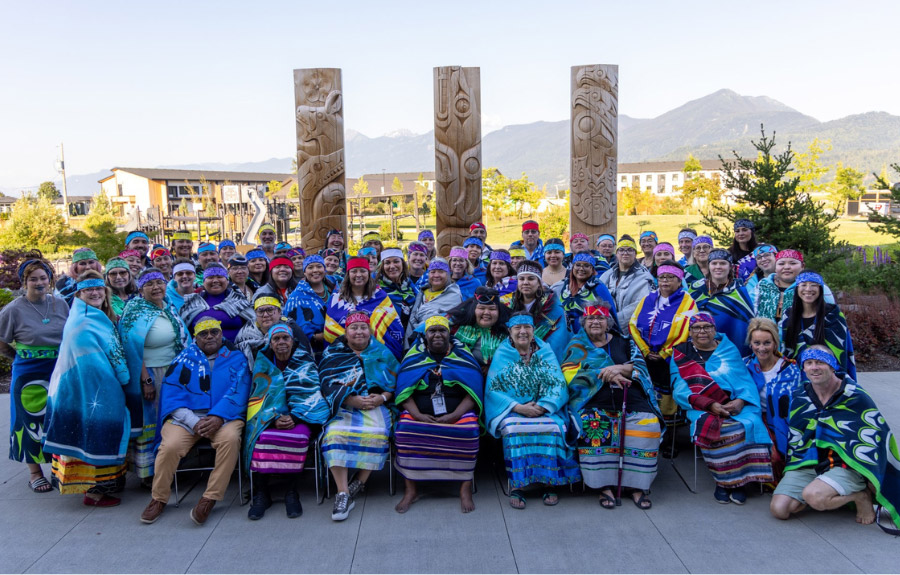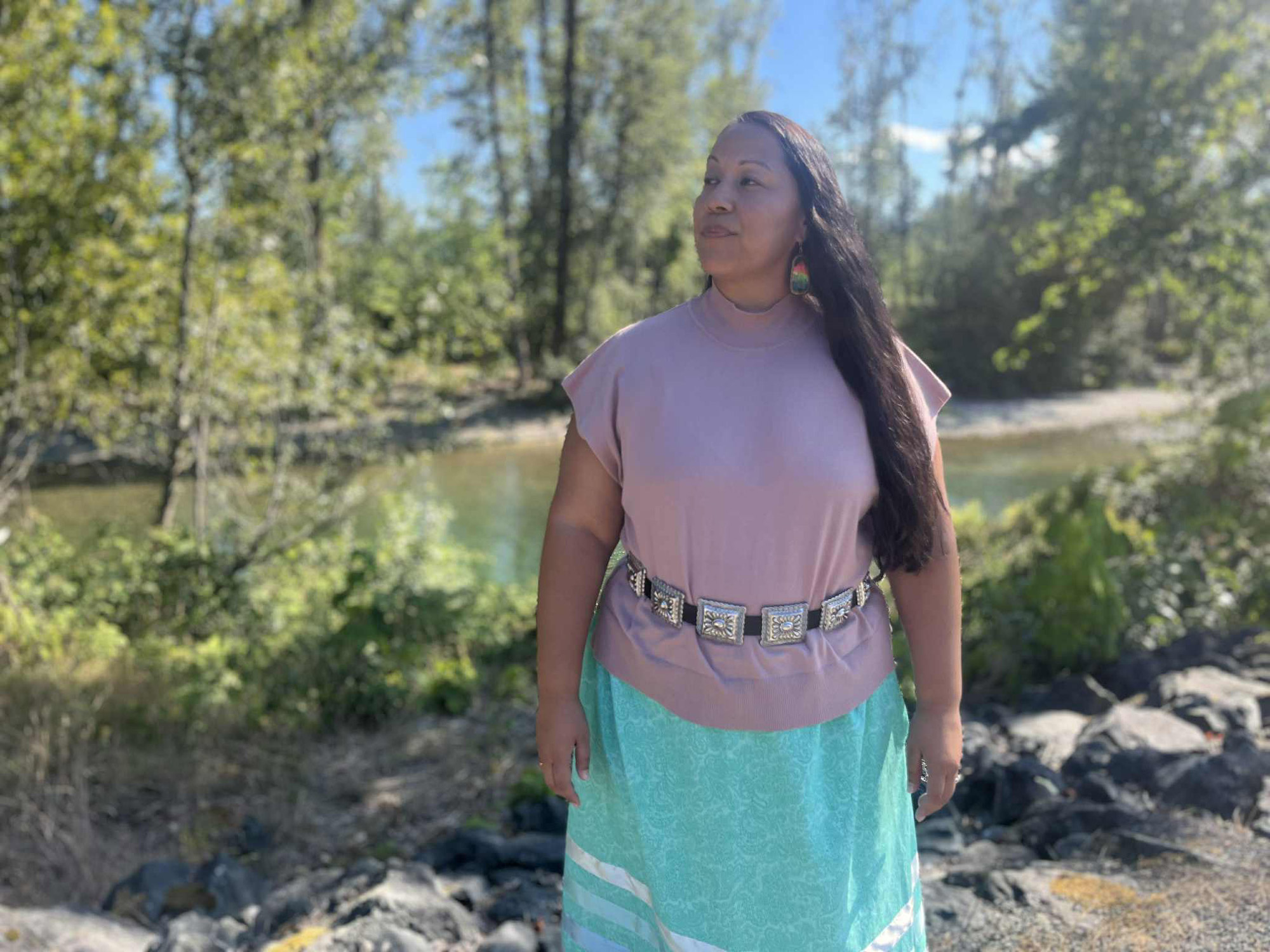Global partners from four countries gather in BC to celebrate success and unity of the LEGO Spirit program
Along the banks of the Cowichan River, families have passed down ancient knowledge of spearfishing with slender cedar poles since time immemorial on Vancouver Island. This traditional way of fishing weaves together sustenance and ceremony. This unbroken bond between the Cowichan Tribes and the river was on display at the Quw'utsun Cultural Centre in Duncan, BC this summer for the start of the 2025 LEGO Spirit Global Gathering.
“My mom shared that when we were little ones, because even women do it, she would put us on her back and carry us down to the river to spear fish as we were on her back," says Ann-Marie Louie, Family Spirit Worker/ Home Visitor for the Cowichan Tribes, after Elder Harold Joe concluded his demonstration, kicking off the six-day cultural exchange. “Sometimes we'd be sitting with my great-grandma on the shoreline, watching my mom spear."
In July, First Nations Health Authority (FNHA) welcomed over 70 delegates from Aotearoa (New Zealand), Australia and the United States to celebrate the success and unity of the LEGO Spirit project. A partnership between FNHA and the Johns Hopkins Center for Indigenous Health (JHCIH), the LEGO Spirit program trains local home visitors to support First Nations parents with children from birth to age six.
“I find that the community has gained a lot from having the Family Spirit work in the community," says Louie, who supports five Cowichan families through the parenting skills program. “It's really nice to still follow it but not have to follow it all the way. Just take bits and pieces and be able to share that with the community and make it Cowichan-oriented."

Building a world of Indigenous play
JHCIH has developed and delivered the Family Spirit curriculum for over 30 years in the United States before expanding internationally through the LEGO Foundation's Build a World of Play Challenge in 2022. Since then, more than 20 Indigenous communities across the four countries have been introducing the curriculum to new parents while developing plans to build “nature-based intergenerational play spaces."
For example, the Splatsin First Nation will be building a traditional kekuli, or pithouse, in the cultural garden of their daycare where Elders will share songs and stories with children. Aside from Splatsin First Nation, the FNHA is also piloting the program with the Cowichan Tribes, Lil'wat First Nation, Skowkale First Nation, and the Niislaa Naay Healing House on Haida Gwaii.
“Intergenerational play for me is an acknowledgement that play can and should be reciprocal," says Sophia Taula-Lieras, Family Spirit LEGO Project Director, JHCIH. “An Elder can tell a story or tell a song, the child picks it up, and there's this beauty in the Elder feeling really satisfied that they were able to share this and they now have somebody to sing with."

Sophia Taula-Lieras says Family Spirit curriculum is another tool in a community's toolkit.
Weaving through the spiritual and physical plane
The “Spirit" in LEGO Spirit stands for “Supporting Play and Intergenerational Relationships with Indigenous Traditions." Dr. Paula King, with the University of Otago in Aotearoa (New Zealand), is a Māori public health physician specializing in Indigenous child development. Dr. King explains that the Māori word for spirit is Wairua. Wai means water and rua means two. Wairua can be interpreted as two waters weaving between the physical and spiritual plane.
“So, we want to dismantle colonial systems, but we also need to build our new worlds. I think what I've seen with all of the communities that we've visited so far; they're all building their worlds. They're using knowledge from the ancestors, which is what we want to do, to build or I would say rebuild the worlds," Dr. King says.
Vanessa Farrelly is a Pertame language nest coordinator with the Batchelor Institute for Indigenous Tertiary Education, the Australian partner in the LEGO Spirit project. She supports children from birth to age five and their mothers as they are immersed in language four days a week with Elders, supporting intergenerational play and the revitalization of a language that only has 10-20 fluent speakers left.
“Even though we're separated by such vast oceans, we have such similar stories and so much shared experience especially with colonization of our people," Farrelly says.
The delegates visited three communities, traveling about 600 kilometers in total, including Quw'utsun', Sq'ewqéyl, and the shared territory of L̓il̓wat7úl and Sḵwx̱wú7mesh. Tsm7aksaltn and Gaw Tlagée were proudly represented by regional advisors. The journey fostered cross-cultural connections and proudly showcased the beauty of BC. In 2027, LEGO Spirit Global Gathering will be held in Aotearoa (New Zealand).

